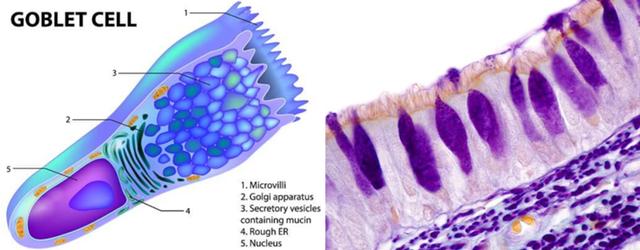It was found that NMN can regulate the diversity and structure of intestinal flora in mice, increase the number of probiotics, maintain the integrity of intestinal mucosal barrier, and improve intestinal function.
NMN enhances intestinal mucosal barrier function and enhances the expression level of tight junction protein, which helps to protect intestinal health. The specific mechanism needs to be further explored.
The area of the human intestinal mucosa can reach 200-300 square meters, which contains a large number of microorganisms, which is commonly understood as the intestinal flora.
Previous studies have shown that intestinal flora is not only related to digestion and absorption, but also participates in the body's immune regulatory system and endocrine system.

In 2021, a research team from Jiangsu University found that supplementing NMN (nicotinamide mononucleotide) can not only increase the number of probiotics in the gut, but also regulate the diversity and structure of intestinal flora;
It can also promote intestinal mucus secretion and maintain the integrity of the mucosal barrier.
The study was published in July of the same year in the journal Frontiers in Nutrition.
In the experiment, the researchers randomly divided the mice into 5 groups, except the control group, the remaining 4 groups of mice were added to the drinking water of different concentrations of NMN, respectively recorded as group G1 (0.1mg/mL), group G2 (0.2mg/mL), group G3 (0.4mg/mL) and group G4 (0.6mg/mL).
After 15 weeks of long-term oral administration, the researchers sampled the mice for analysis.
The results showed that long-term administration of NMN had an adjustment and optimization effect on the structure of intestinal flora in mice, which increased the number of probiotics, including Akkermansia muciniphila, and also reduced the proportion of some harmful bacteria.

FIG. 1 Thermogram of intestinal microorganisms in mice (distribution by genus)
In addition, the researchers stained goblet cells and the mucus layer in the mouse gut with Alcian Blue.
Literally, goblet cells grow larger on top and smaller on the bottom, shaped like tall cups;
It secretes mucin in the gut and forms a mucus barrier, preventing outside bacteria from directly invading the gut's upper cortex.

Figure 2 shows a goblet cell
The results showed that mice supplemented with 0.1 mg/mL of NMN in drinking water significantly increased the number of intestinal goblet cells and mucus thickness compared to the control group.
These results indicate that NMN can enhance the mucosal barrier function.

FIG. 3 Results of Alcian Blue staining in G1 group (0.1mg/mL NMN added to drinking water) and Control group
At the same time, the researchers also found that NMN increased the expression level of tight junction protein in mouse intestinal cells.
Tight-junction protein has the function of connecting the gaps between cells and plays an important role in the intestinal mucosal barrier, and its damage can lead to increased permeability between cells, resulting in intestinal leakage.
After long-term administration of NMN, the expressions of Claudin-1 and ZO-1 in the intestinal tract of mice increased significantly, which improved the intestinal function of mice.

Figure 4 NMN significantly increased the expression levels of the tight junction proteins Claudin-1 and ZO-1 in the gut of mice
In summary, this experiment found that long-term oral administration of NMN in mice could not only regulate the diversity and structure of intestinal flora, but also maintain the integrity of intestinal mucosal barrier and improve intestinal function, thus achieving the purpose of protecting intestinal health.
As for the specific mechanism of NMN regulation of intestinal flora, it remains to be further explored.
References:
1. Huang, P., Jiang, A., Wang, X., Zhou, Y., Tang, W., Ren, C., Qian, X., Zhou, Z., & Gong, A. (2021). NMN Maintains Intestinal Homeostasis by Regulating the Gut Microbiota. Frontiers in nutrition, 8, 714604. https://doi.org/10.3389/fnut.2021.714604


